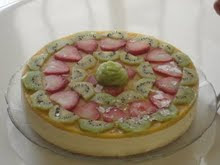People with sleep apnea, a disorder that affects more than 12 million people in the United States, literally stop breathing repeatedly during their sleep, sometimes for a minute or longer. With the most serious form, obstructive sleep apnea (OSA), this can happen hundreds of times during a single night and deprive the brain of oxygen.
The result? Possible brain damage causing memory problems. In fact, people with OSA are known to have increased markers of oxidative stress and exhibit changes in their brain tissue in areas involved in learning and memory.
But natural substances in green tea appear to stave off these OSA-caused cognitive deficits according to new research published in the second issue for May of the American Thoracic Society's American Journal of Respiratory and Critical Care Medicine.
Scientists studied the effects of green tea polyphenols (GTP, for short) on rats who were intermittently deprived of oxygen in order to simulate the lack of oxygen, known as hypoxia, that humans with OSA experience. Chronic hypoxia in rats is known to produce similar neurological deficit patterns seen in humans with sleep apnea.
Previous research has shown that GTPs may reduce the risk of a variety of different diseases, most likely because they possess anti-oxidant properties and act as free radical scavengers. "OSA has been increasingly recognized as a serious and frequent health condition with potential long-term morbidities that include learning and psychological disabilities," David Gozal, M.D., professor and director of Kosair Children's Hospital Research Institute at the University of Louisville, said in a prepared release for the press. "A growing body of evidence suggests that the adverse neurobehavioral consequences imposed by hypoxia stem, at least in part, from oxidative stress and inflammatory signaling cascades."
Dr. Gozal and his colleagues divided 106 male rats into two groups that underwent intermittent oxygen deprivation during the 12-hour "night" cycle for 2 weeks. One group received drinking water containing GTPs while the other group received plain drinking water.
Then the animals were tested for markers of inflammation and oxidative stress and their spatial learning and memory was measured by putting them through in a water "maze". To get out of the water, the rats had to memorize the location of a hidden platform.
The rats who received the green tea-treated water clearly had the better memories and performed significantly better in the water maze than the rats that drank plain water. So the researchers concluded GTPs "may represent a potential interventional strategy for patients" with sleep-disordered breathing, according to Dr. Gozal, who headed the research team.
Using green tea instead of drugs prevents brain deficits due to hypoxia and could be an important aid to preserving the memories of millions of people suffering from sleep apnea. What's more, green tea may well contain substances that offer hope for a variety of other brain-injuring diseases. "Recent studies have demonstrated the neuroprotective activity of GTP in animal models of neurodegenerative conditions such as Parkinson's and Alzheimer's disease," Dr. Gozal wrote.
Suncooked Cuisine is Fresh, Pure, Vibrant, Tropical, Wild cuisine with all it's healing benefits to your body matrix. This botanical style has been remembered by Chantel Selman Ir. to reintroduce a old style of living fully and beauty and love.
Friday, June 6, 2008
Subscribe to:
Post Comments (Atom)
How to use a Neti pot
New Patio

New Patio
Coconut Oil

Try our 1 gallon coconut oil
Wild Rice with chezy cauliflower

Lunch on Wednesday...Wild Rice
Leaf of Life

Leaf of Life is great for coughs
Chocolate Ginger Mosse cake

Have u tried our CHOCOLATE layer cake
Kombucha

Making Kombucha Tea with fresh cane juice
Paradise Pizza

Best pizza ever
Golden Apple Chez cake

Golden apple Mango Chez cake



No comments:
Post a Comment